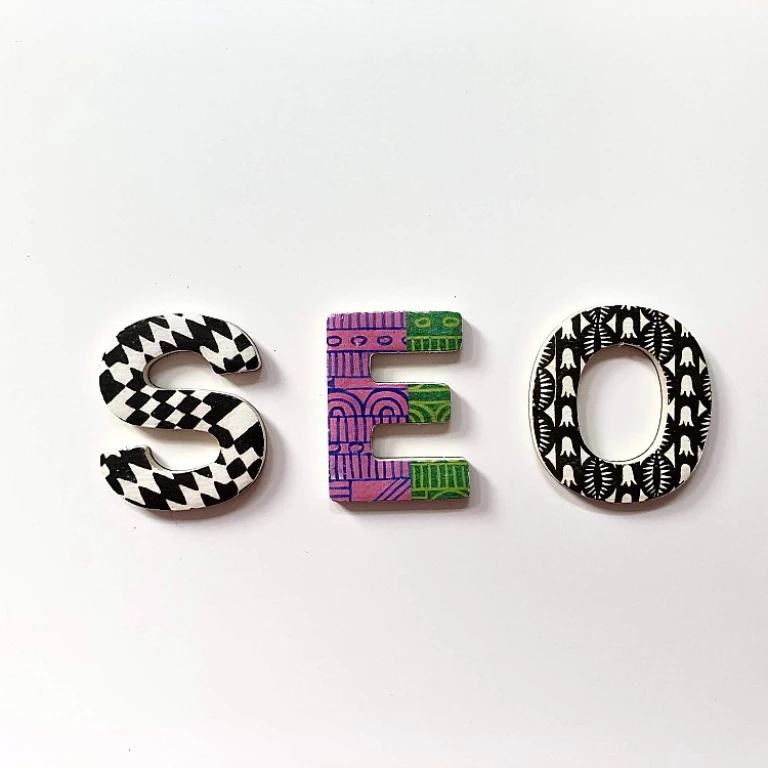
The Algorithmic Alchemist: AI as the Future of SEO
The Evolutionary Leap in Search Algorithms
AI and SEO are intertwining with unprecedented sophistication, as artificial intelligence becomes the algorithmic alchemist in the digital marketing realm. The application of AI in SEO strategies is revolutionizing how marketers optimize websites, create content, and connect with their audiences. By analyzing vast amounts of data, AI algorithms not only enhance the precision of SEO tactics but also transform the search engine landscape into a more intuitive and user-focused environment. This symbiotic relationship suggests a futuristic SEO marketing era where AI's capabilities are integral to success. To truly understand the transformative power of AI in SEO, one must first recognize its role as the driving force behind smarter and more responsive search algorithms.
The Emergence of Machine Learning in SEO
Machine learning, a subset of AI, has propelled the sophistication of search engines to stratospheric levels. It involves the development of systems that can learn from and make decisions based on data. In the context of SEO marketing, this means algorithms are now equipped to parse through the semantic intricacies of user generated content and queries. The results? Highly targeted and relevant search results that cater to the specific needs of users, enhancing user experience and engagement. As machine learning continues to advance, anticipate even more nuanced and intelligent responses from search engines to the complex and varied queries posed by users.
Intelligent Automation and SEO Scalability
The sheer volume of tasks involved in traditional SEO can be overwhelming for marketers. AI's ability to automate repetitive and complex tasks has made SEO efforts more efficient and scalable. Intelligent automation encompasses everything from keyword research and on-page optimization to link building and content distribution. It significantly reduces the time and resources necessary to execute successful SEO strategies while simultaneously increasing accuracy and consistency. This technological leverage is indispensable in today's fast-paced, data-driven marketing environment.
The Human-AI Collaboration in Content Creation
While AI is not poised to replace human creativity, it augments content creation by offering data-driven insights and suggestions. AI tools can analyze the performance of various content types and suggest improvements or new topics that are likely to resonate with target audiences. They can also assist in uncovering the nuanced language patterns and content structures that can elevate SEO efforts. Today's marketers must embrace this human-AI collaboration to craft compelling and optimized content that not only draws in traffic but also encourages engagement and conversion.
Decoding Search Intent: AI's Role in Understanding User Behavior
Understanding the Nuances of User Queries
Unraveling the intricacies of search intent has traditionally challenged SEO experts. However, with the advent of artificial intelligence, this task has become increasingly feasible and accurate. AI algorithms now delve deeper into the fabric of search query data, discerning not just keywords but the inherent user intent behind each search. This profound comprehension has revolutionized how content is crafted and presented to meet user needs, enhancing both the relevance and personalization of search results.
The Evolution of Keyword Analysis
While keywords remain fundamental in SEO marketing, AI’s analytical prowess has elevated their optimization to unparalleled heights. By sifting through vast seas of data, AI tools can recognize patterns and thematic clusters that human analysts might overlook. Such granular analysis enables marketers to tailor their strategies to target specific segments, catering to a gamut of user intents, from informational to transactional.
AI-Powered Insights and User-Centric SEO
A significant leap in aligning SEO practices with actual user behavior comes from AI's ability to analyze and predict trends. It offers actionable insights, harnessing the power of machine learning to fine-tune SEO strategies in real time. Content that resonates with users is now at the forefront, as AI seamlessly adapts websites to user preferences and behavior, fostering more engaging and intuitive online experiences.
In this landscape, recognizing the shift from a keyword-centric approach to a user-centric one is paramount. Today, enhancing user experience is synonymous with SEO success. For more thought-provoking discussions on AI's transformative role in SEO, explore how AI shapes the intersection of search technology and user satisfaction by reading our detailed article, 'Reimagining SEO: How AI Transforms Search Engine Dynamics and User Experience'.
The SEO Crystal Ball: Predictive Analytics in AI-Driven Marketing
Predictive Insights: Harnessing AI for SEO Success
In the realm of SEO marketing, artificial intelligence has emerged not only as a facilitator but also as a forecaster. The power of AI to analyze vast data sets has painted a clearer picture of future trends, allowing marketers to stay one step ahead. By integrating predictive analytics, SEO strategies are no longer solely reactive; they become proactive, sculpting campaigns that align seamlessly with the future search landscape.
Predictive analytics in SEO harnesses machine learning algorithms and data mining to forecast future events based on historical data. It’s a potent tool in a marketer’s repertoire, providing valuable foresight into user behavior, market trends, and algorithm changes. Armed with predictive insights, businesses can optimize their online presence more efficiently, ensuring they rank highly on search engine results pages (SERPs) when those future events occur.
Machine Learning: Crafting Future-Proof SEO Strategies
Where traditional SEO tactics might focus on current keyword trends and SERP analysis, AI-fueled predictive analytics digs deeper into the 'why' and 'how' behind user searches. Understanding these underlying patterns gives rise to a more robust, future-proof strategy. Businesses that implement AI-driven insights can predict shifts in consumer interests or behaviors and adjust their content accordingly, capitalizing on trends before they go mainstream. Such anticipation is not only smart but necessary in a fast-paced digital world where staying ahead means staying relevant.
- 78% of organizations either have or are developing a customer data platform to help manage, analyze and leverage their data. (Source: Forbes)
- Businesses that leverage predictive analytics are twice as likely to outperform their peers in terms of revenue growth. (Source: PwC)
For instance, by analyzing search query data, marketers can identify emerging patterns and capitalize on them for content creation. This strategy is not only about understanding current search intent but also predicting future queries.
Forecasting Algorithmic Shifts with AI Precision
The AI revolution brings to light the dynamic nature of search algorithms. Search engines are constantly evolving, and AI's predictive models can forecast these evolutionary trends. Doing so enables SEO professionals to craft content that aligns with the trajectory of search engine algorithms, ensuring sustained visibility.
By applying predictive analytics, SEO experts can anticipate the keywords likely to gain prominence and optimize content ahead of the curve. This predictive capability extends to backlink opportunities, user engagement metrics, and more—each aspect equally important in the eyes of sophisticated search engines.
In essence, the foresight offered by AI is quintessential for maintaining a stronghold on SERP rankings amid constantly shifting algorithms.
Unlocking the Power of Predictive Analysis
To tap into the predictive prowess of artificial intelligence, SEO marketers must integrate a host of AI-powered tools and platforms. These may range from analytics dashboards that forecast search trends to AI-empowered content optimization software that suggests modifications tailored to future search behaviors.
Key takeaway: AI-driven predictive analytics is not just a fleeting SEO trend. It’s a transformative approach that discerning marketers are adopting to imbue their strategies with an element of foresight unprecedented in traditional SEO practices. This shift is redefining SEO marketing as we know it, prompting a seismic shift towards intelligent, anticipatory optimization strategies.
Crafting the Conversational Query: AI's Impact on Long-Tail Keywords
Mastering Voice Search Optimization
The digital marketing landscape has observed a significant pivot toward voice search optimization due to AI advancements. As virtual assistants like Siri and Alexa become ubiquitous, the nature of search queries has evolved to be more conversational. These long-tail keywords, often posed as full-fledged questions, demand a more nuanced approach to SEO. The key lies in understanding natural language processing (NLP), an AI domain that comprehends user queries in a way humans naturally speak.
The Renaissance of Long-Tail Keywords
In the realm of SEO marketing, the surge of long-tail keywords cannot be overstated. Unlike short, vague terms, these extended phrases are highly specific and less competitive, which makes them golden opportunities for marketers to rank higher in search engine results pages (SERPs). AI leverages NLP to dissect these keywords, providing unparalleled insights into consumer preferences and allowing for a tailored content strategy that resonates with the target audience on a personal level.
Enhancing User Experience with AI and Semantic Search
Search engines are now more adept at interpreting the searcher's intent, thanks to semantic search technologies powered by AI. They analyze not just the keywords but also the context surrounding them to deliver the most relevant results. This progression pushes content creators to craft high-quality, context-rich information that aligns with the user's intent. By utilizing AI tools for keyword research, marketers gain a competitive edge by predicting and fulfilling the needs of their audience with precision.
Navigating the Shift to Topic Clusters
AI-driven strategies emphasize the importance of topic clusters – collections of interlinked articles or pages centered around a core theme. As AI continues to refine the SEO l-based algorithms, topic clusters have become fundamental in demonstrating subject matter expertise. This method not only bolsters the rankings of individual pages but also enhances the authority of the entire website. It enables a more organized approach to address the varied nuances of conversational queries, by providing comprehensive coverage of a specific topic.
Conclusion
AI is not just shaping the future of SEO; it is actively defining it with each algorithm update. Leveraging AI for long-tail keyword optimization embraces the conversational nature of modern-day queries, ensuring content is crafted to meet the sophisticated demands of both search engines and users. By aligning with AI’s capabilities, marketers can deliver a more effective, targeted, and user-centric SEO strategy that captures the essence of the searcher’s journey and secures a dominant online presence.













